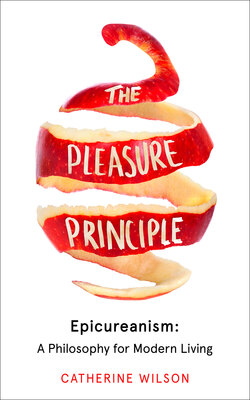Читать книгу The Pleasure Principle - Catherine Wilson - Страница 9
Back to Basics
ОглавлениеThe totality is made up of bodies and void … Beyond these two things nothing can be conceived … Among bodies, some are compounds, and some are those things from which compounds have been made. And these are atomic and unchangeable …
Epicurus
There are certain particles whose concurrences, movements, order, position and shapes produce fires; different combinations of them form things of different nature, but they themselves are unlike fire or any other thing …
Lucretius
Let’s start with a set of questions – large ones, with significant implications – to which the Epicurean has a definite answer. Is there anything completely indestructible and permanent in the universe? If so, what is it? And why does the Epicurean answer to such an abstract question matter?
In thinking about endurance, we can immediately rule out tables and chairs, houses and skyscrapers, pens and pencils, and all other objects that human beings fabricate. All of these items have finite useful lives ranging from a few months to a few thousand years. Any of these items can be broken up by taking a crowbar or a wrecking ball to it, or just by snapping it in two in the case of pens and pencils. Left to themselves, over hundreds or thousands of years, each of these items will crumble into dust. Plastic bags, we have learned to our dismay, will persist for an astonishingly long time, perhaps a thousand years in landfills, but eventually they, too, will be broken down by light or heat, or by chemicals or micro-organisms.
Very well, what about enormous natural objects like mountains or the ocean? They are not so easy to destroy, but enough nuclear weapons or a very large asteroid could flatten the Himalayas. And in time – in hundreds of millions or several billion years – all life on our planet will have long been extinct. The earth will be consumed by the sun within 5 billion years, and our galaxy will collapse.
What, then, about the chemical elements – hydrogen, carbon, uranium and so on? There are many competing scenarios for the end of the universe as we know it and the disappearance of every galaxy, but in all of them the chemical elements, too, will eventually vanish.
Even time and space, and the so-called elementary particles, the quarks and gluons and bosons, will cease to exist, according to current theory.
But, surely something must continue to exist! The universe can never wind down into nothing … zero … total annihilation …?
